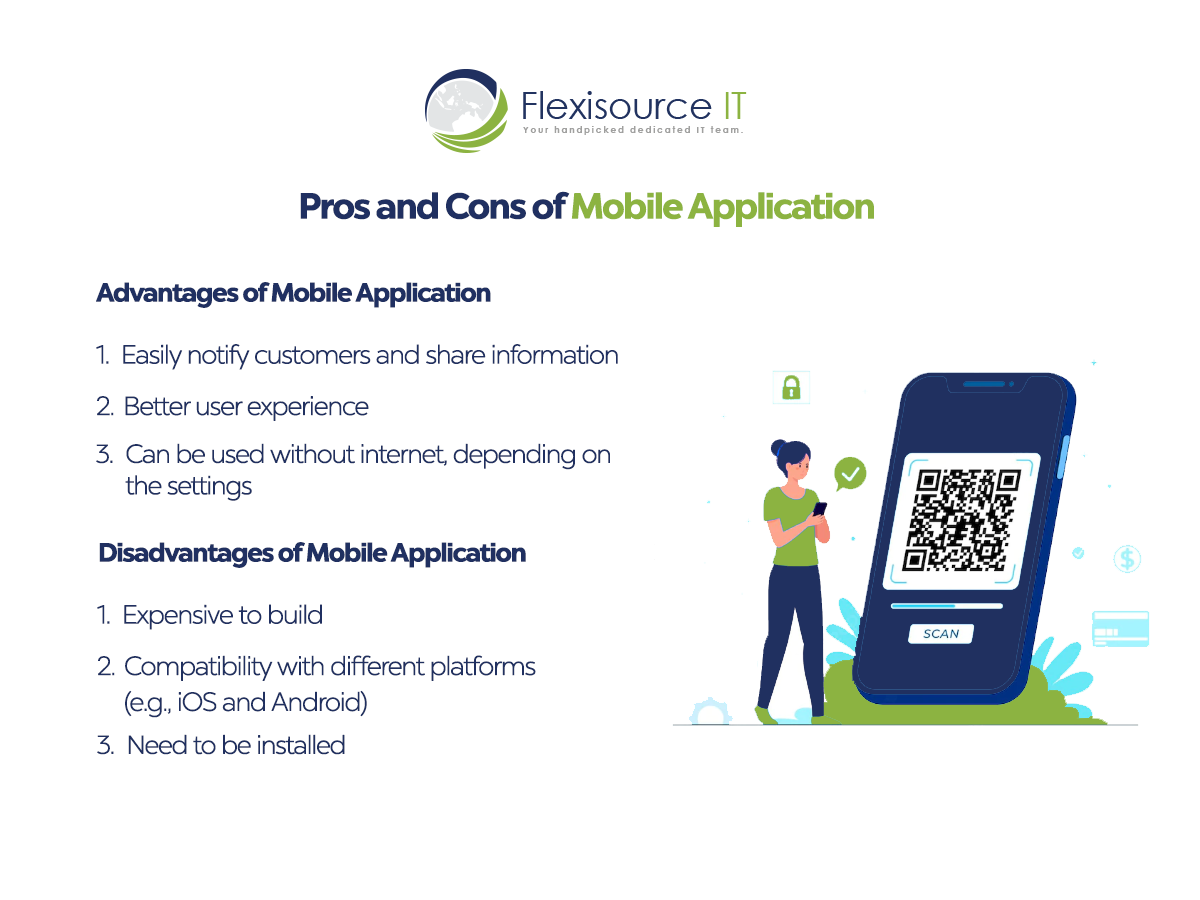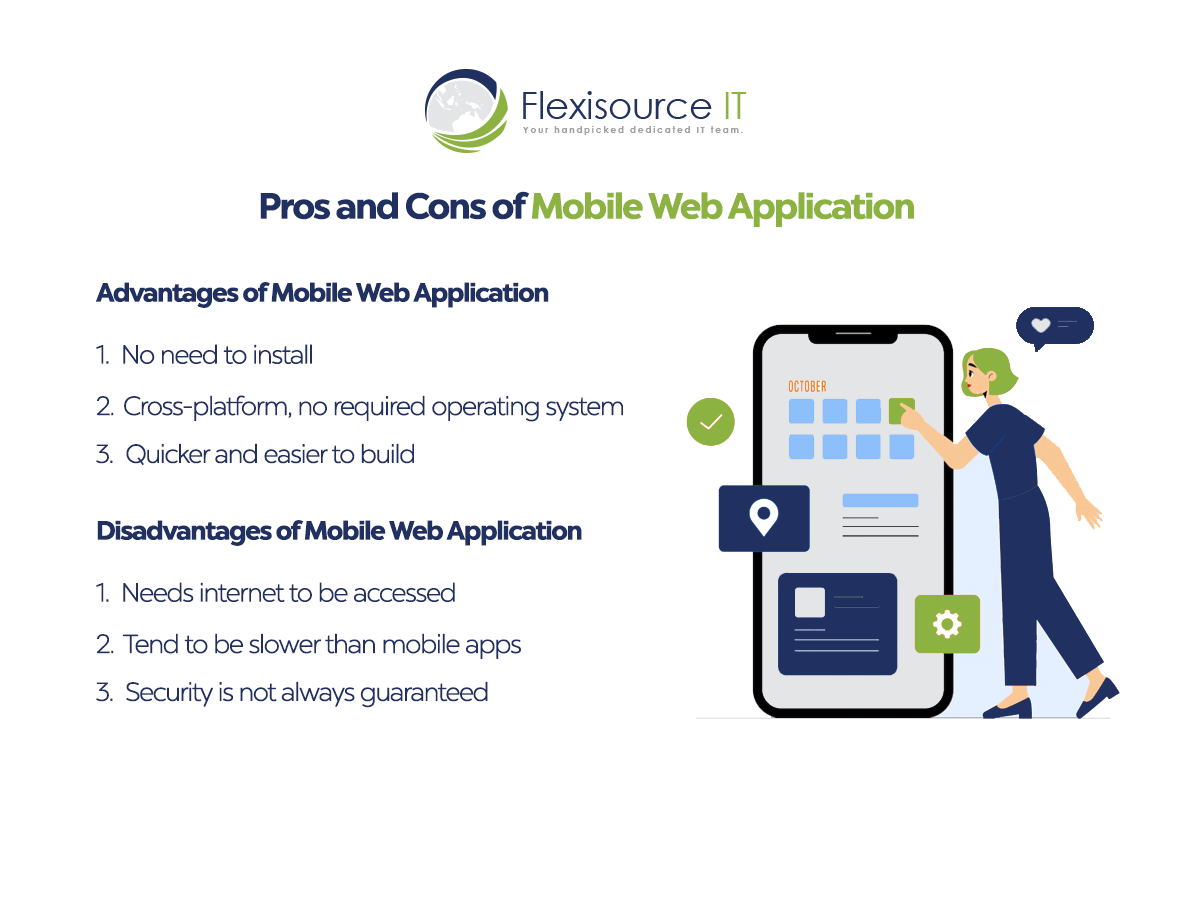Most people use apps to carry out jobs, tasks, etc. Whatever the platform may be, everyone relies on the application in some way to finish homework. Even the simplest ones, like ordering food or doing groceries, are done by apps. 64.6 billion apps were downloaded on Google Play in 2021.
In any industry, businesses are always looking to build and innovate apps to improve their customer service and develop better relations with their clients. Developers can create apps for different functions, including eCommerce, knowledge-based, or customer service.
And yet, building an application, especially for business, must be done carefully. You need to evaluate your requirements and make the right decision. Moreover, you need to choose the right platform for where you want your application to be. Thus, this article will tackle the difference between mobile apps vs. mobile web apps and their pros and cons.
What is a Mobile Web Application?
A mobile web application is a type of mobile software that users can access via a web browser and the internet. It is designed to be viewed and interacted with on a mobile device. Mobile web applications are often created using HTML5 and JavaScript. It allows users to access mobile web apps on any device with a browser, such as desktop computers, tablets, or even smartphones.
Mobile web applications are typically used for providing information in the form of text, images, or video to the user. They can also offer interactive services like games, calculators, and chat programs.
What are the Pros and Cons of Mobile Web Application?
While a mobile web app is a great technology selection for some businesses, it is not perfect. There are numerous advantages and disadvantages between mobile apps vs. mobile web apps. Here are some pros and cons of mobile web apps for business.

Advantages of Mobile Web Application
1. No need to install
The latter wins when it comes to portability between mobile apps and mobile web apps. Mobile web applications are accessed only via the web browser and the internet. Downloading and installing it on your device is no longer necessary.
Moreover, web apps will update themselves.
2. Cross-platform, no required operating system (OS)
Moreover, web apps adapt to whichever device you are viewing. They are not native to any design and thus can be accessed anywhere and on any device. Most mobile web apps can be accessed using either iOS or Android via Chrome, Safari, Opera, etc.
3. Quicker and easier to build
Mobile web applications are websites designed to look like mobile applications. They are intended to be run on a browser. Likewise, web applications are more accessible to build than mobile applications because they use universal languages such as JavaScript, CSS, and HTML5.
Moreover, compared to mobile apps, businesses can build a simple web app for as low as $5,000.
Disadvantages of Web Application
1. Needs internet to be accessed
As mentioned earlier, mobile web applications are reliant on internet connection. All data and media of the web application are stored on a remote server. This data is delivered to your mobile device through the browser interface.
2. Tend to be slower than mobile apps
Although mobile web apps tend to be smaller in size, they can be slower than mobile apps. Factors such as internet speed, size of data, and memory play a significant role in determining the web app’s speed.
A standard web app can be a bit smaller when used compared to the quick response of mobile apps.
3. Security is not always guaranteed
As compared to mobile apps, web apps are more exposed to security. Running online means that most data will be transported online, which could cause privacy issues if not appropriately secured. When using web apps, you need to be careful with customer-sensitive data.
What is Mobile Application?
A mobile application is a computer program on smartphones and tablets. Mobile applications are usually developed with the use of specific software programming languages.
There are many benefits of having a mobile application. It is the fastest way to get your product into the hands of your customers. Mobile applications are also great for marketing, as they can drive traffic and increase sales.
Millions of people across the world use mobile applications. For example, some of the most popular smartphone apps are WhatsApp, Facebook, and Instagram.
What are the Pros ad Cons of Mobile Applications?
Like mobile web applications, mobile apps are not for every business. Below are some of the advantages and disadvantages of mobile apps.

Advantages of Mobile Application
1. Easily notify customers and share information
The former is better regarding notifications in mobile apps than mobile web apps. Web mobile applications have limited ways to connect with customers besides web notifications. Web notifications are sent through the web browser. Users will usually miss said notification if the web browser is not open.
On the other hand, mobile apps are the future of customer interactions. They are more efficient than web applications because they offer a better way to connect with customers and help them find their needs.
Mobile applications have push notifications, a great way to send alerts or messages to users. Users can use them for various purposes, such as reminding users about an upcoming event or alerting them about new features in the app. It is crucial to send push notifications at the right time, so they don’t seem too intrusive and irritate users into deleting the app.
2. Better user experience
Regarding user experience between mobile apps vs. mobile web apps, web applications are not as efficient as mobile apps in terms of user experience. Mobile apps offer a better way to connect with customers and help them find their needs. They provide a better user experience than web applications because they are more interactive, accessible, and easy to use.
Most native mobile apps are designed based on the platform’s user interface (UI). It makes it faster and more reliable compared to web applications.
3. Can be used without internet, depending on the settings
Users can use a mobile application without the internet, which is a crucial advantage in the age of data caps. It also means that you don’t need to rely on a connection to use the app, which makes it perfect for people on the go.
Disadvantages of Mobile Application
1. Expensive to build
Mobile application development is an expensive process. Many companies don’t have the skill set to build their mobile apps and need to hire a mobile app development company. It is not just the cost of hiring developers but also designing, testing, and marketing.
In fact, according to Applico Inc, mobile application development can range anywhere from $100,000 to $300,000.
2. Compatibility with different platforms (e.g., iOS and Android)
As mentioned, mobile apps are built for specific operating systems such as iOS or Android to deliver performance and experience. It could be causing an issue for your end users, mainly if the app is only limited to one OS.
As a result, some of your users will not be catered to and can leave for another business.
3. Need to be installed
Users cannot use mobile applications without being installed on their devices. It can take up space with the users’ device, slowing their device down, especially if the app is immense. Moreover, most updates need to be installed regularly by the user to keep the apps functioning seamlessly.
In addition, most mobile apps are downloaded and installed via an app store. They need to go through much stricter quality assurance before being approved.
Mobile Apps Vs. Mobile Web Apps: Which is Better?
In summary, both mobile apps vs. mobile web apps provide different benefits to a business. As such, you must always do what your business requirement state. Development of both mobile apps and web apps costs a lot. It is time-consuming and demands a lot of thinking, planning, and strategy.
So make sure you research first before choosing one for your business. And if you want to learn more, Flexisource IT can help you. Learn more about our mobile web application and mobile application development by contacting us!





